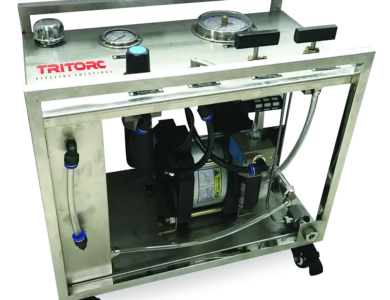Various Roles Played By Pharmaceutical Waste Management

Pharmaceutical waste management is a challenging task for any company handling hazardous materials. It requires constant monitoring, documentation and segregation of different types of wastes.
In this blog post, we will look at the various roles played by pharmaceutical waste management within the scope of a company dealing with hazardous chemicals.
Introduction Pharmaceutical Waste Management
Pharmaceutical waste management is the process of handling and disposing of pharmaceuticals and other medical wastes safely and responsibly.
The main goal of pharmaceutical waste management is to protect public health and the environment by reducing the risks posed by these wastes.
There are different roles played by different stakeholders in pharmaceutical waste management, such as government agencies, healthcare facilities, pharmaceutical companies, and waste management companies.
Government agencies set regulations for how medical waste must be managed. Healthcare facilities are responsible for generating and storing medical waste. Pharmaceutical companies produce medications that become medical waste.
Cleaning and repairing operational equipment to remove chemical residues, oil and grease is known as process or cleanroom maintenance.
Cleaning and sterilizing areas where chemicals are stored is also part of pharmaceutical waste management.
An important aspect of pharmaceutical waste management involves segregating different kinds of hazardous or hazardous materials for disposal in the correct containers, be it incinerators, remote sites, or other locations designated for specific types of chemical waste.
This includes all processes from initial separation to final disposal after processing.
Storage And Handling Of Hazardous Chemicals
The first step of pharmaceutical waste management is storing hazardous chemicals in separate containers to avoid any accidental mixing with non-hazardous substances.
Containers should be clearly mark with the chemical contents to enable easy identification. Liquid and semi-liquid chemicals can be store in drums.

Containers for highly toxic chemicals should be of a material approve for such use by the local regulatory authorities. Dry chemicals can be store in bags, which should be clearly label with the chemical name, CAS (Chemical Abstracts Service) number, chemical composition, and molecular formula.
A useful measure in pharmaceutical waste disposal companies is the Emergency Response Information (ERI) document. It provides information on the chemicals being handle and store, quantities, emergency response information, and legal obligations.
Waste Identification And Segregation
Waste comprises chemicals that are for further use. It may also include use of solvents and cleaning solutions. Once the waste is identifie, it is segregate into different categories.
Depending on the chemical content, the waste can be segregate into organic, inorganic, biological, and radioactive waste. Chemicals for further use may be regulate as hazardous waste if they exhibit one or more of the characteristics of hazardous waste.
Waste is consider hazardous if it exhibits one or more of the following characteristics: Ignitability (flammability), Corrosivity (ability to corrode materials), Reactivity (ability to chemically react with other substances), or Toxicity (ability to harm living organisms).
Incineration Of Waste
Once the waste is segregate and identifie, it is incinerate but the process is not a standard practice in every country.
Depending on the quantity of waste generated by a pharmaceutical manufacturer, it can choose remote incineration of waste or incineration on-site.
In remote incineration, the waste is transport to other facilities/regions with more advance incineration facilities. Remote incineration of hazardous waste is govern by the same rules as incineration on-site.
When hazardous waste is too remotely incineration, documentation and record keeping of the waste to be incinerate are essential, along with the weight of the waste. Waste can also be taken to dedicated incinerators, often near airports or port areas.
Disposal Of Hazardous Waste
Depending on the type of chemical waste generate, different types of disposal are follow. Some chemicals can be dispose of as non-hazardous waste.
However, most pharmaceutical hospital waste is hazardous, and proper facilities and methods must be used for safe disposal.

Depending on the regulations of a country, methods of disposal include landfills, sub-surface injection, and the use of specialised disposal facilities.
Different Roles Played By Pharmaceutical Waste Management
The Roles Played By Pharmaceutical Waste Management
There are many different roles play in pharmaceutical waste management. The most important role is to ensure that all pharmaceutical waste is dispose of in a safe and responsible manner.
This includes ensuring that all hazardous materials are properly label and store and that all non-hazardous materials are dispose of in an appropriate manner.
Another important role play by pharmaceutical waste management is to educate those who work with or come into contact with pharmaceuticals about the proper way to handle and dispose of them.
This education can help to prevent accidental exposure to hazardous materials, and can also help to ensure that non-hazardous materials are dispose of in an appropriate manner.
Yet another roleplay by pharmaceutical waste management is to monitor the disposal of pharmaceuticals.
This monitoring can help to ensure that all regulations regarding the disposal of these materials are follow. Additionally, this monitoring can help to identify any trends in the disposal of these materials, which can be use to improve the safety and efficiency of the process.
The Benefits Of Pharmaceutical Waste Management
Pharmaceutical waste management is important for a number of reasons. Proper disposal of pharmaceuticals can help to protect the environment and public health, while also ensuring that these drugs are not divert to illegal uses.
Pharmaceuticals can enter the environment through a variety of channels, including improper disposal by consumers, leaks or spills from manufacturing facilities, and wastewater discharge from sewage treatment plants.
Once in the environment, pharmaceuticals can persist for long periods of time and accumulate in the food chain.
There is growing evidence that exposure to low levels of pharmaceuticals can cause harmful effects in humans and wildlife.
For example, hormones in birth control pills have been linking to reproductive problems in fish; antibiotics may promote the development of antibiotic-resistant bacteria, and psychiatric drugs have been in the drinking water supplies of several countries.
Proper pharmaceutical waste management can help to minimize the release of these drugs into the environment and reduce the risks to human health and wildlife.
How Pharmaceutical Waste Management Can Be Improved
In recent years, pharmaceutical waste management has become an increasingly important issue. Pharmaceuticals are now the largest and fastest-growing category of waste in the United States.
Each year, Americans generate more than 7 billion pounds of pharmaceutical waste. This waste includes everything from expired medications to unused or unwanted drugs.
There are a number of ways that pharmaceutical waste management can be improve. One way is to increase public awareness about the issue.
Many people are unaware of the problem of pharmaceutical waste and how it can impact the environment and public health. Education campaigns can help raise awareness about the issue and encourage people to properly dispose of their medications.
Another way to improve pharmaceutical waste management is to make it easier for people to dispose of their medications properly.
Many people do not know how or where to properly dispose of their drugs. Making disposal sites more accessible and user-friendly can help encourage people to properly dispose of their medications.
Finally, increasing regulation around pharmaceutical waste management can also help improve the situation.
Stronger regulations can help ensure that pharmacies and other business are properly disposing of their wastes. It can also help create incentives for businesses to find more environmentally friendly ways to dispose of their waste.
Pharmaceutical waste management is a vital but often overlooked part of the healthcare system. There are many different roles played by pharmaceutical clinical waste management, from disposal to education.
By understanding the different roles played by pharmaceutical waste management, we can ensure that our healthcare system is running smoothly and efficiently.
Hazardous chemical waste may also be convert into non-hazardous materials by chemical treatments. If a pharmaceutical company does not have the necessary equipment to treat and dispose of the waste, it can send it to specialised waste disposal firms.
Conclusion
Pharmaceutical waste management is a challenging task due to the volatile and dangerous nature of chemical substances and products.
A company handling chemical substances generates hazardous waste and it is the responsibility of the pharma waste management team to handle it professionally.
This can be achieve with careful segregation, storage, identification, and documentation of waste, follow by incineration or transportation to specialize disposal facilities.



